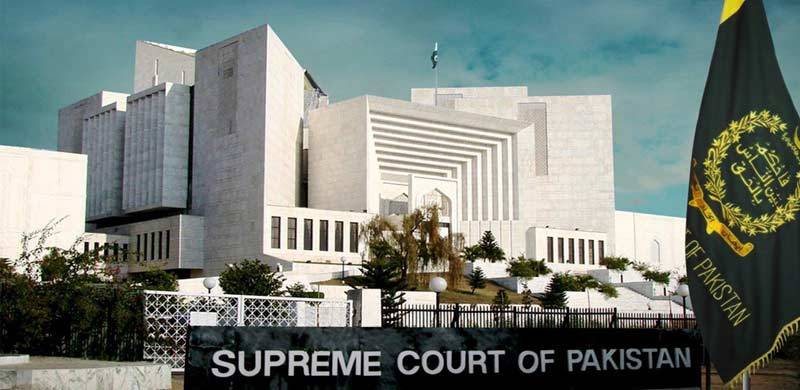
Islamabad
The Supreme Court has directed the federal government to submit the list of the people detained in internment centres situated in tribal districts.
A five-judge bench headed by Chief Justice of Pakistan Asif Saeed Khosa heard the federal and Khyber Pakhtunkhwa governments’ appeal against the Peshawar High Court order to nullify the KP Action (in Aid of Civil Power) Ordinance 2019.
The said ordinance, issued by the KP governor on August 5, gave legal cover to several detention centers set up during military operations in erstwhile FATA.
The ordinance also empowered authorised military officers to detain a suspect as long as the ordinance was in place.
On October 18, the Peshawar High Court had declared the ordinance unconstitutional and had directed the provincial government to share the list of the inmates of these internment centers with the police department. The court also directed the inspector general of police to take over all the ‘illegal’ internment centres.
The PHC order was challenged by the KP and federal governments. Their petitions were taken up by a larger Supreme Court bench comprising of Justice Gulzar Ahmad, Justice Mushir Alam, Justice Umar Ata Bandial and Justice Qazi Faez Isa.
During Wednesday’s hearing, the chief justice noted that there was apprehension that persons in the seven internment centers would be shifted from there. He added, “Therefore, the details of these people should be shared with the court. However, the list will not be made public.”
The chief justice, while questioning the legality of the ordinance, observed that certain rights could not be taken away by invoking Article 245 (1) of the constitution, which obligates the armed forces to defend Pakistan and act in aid of civil power if called upon to do so.
The chief justice questioned how judicial powers could be revoked through regulation, adding that a detainee had to be presented in court within 24 hours of his arrest or detention.
He also referred to Article 8 of the constitution, which says that the state shall not make any law which takes away the rights conferred by the constitution, and any such shall be void.
Earlier, Attorney General for Pakistan Anwar Mansoor Khan raised objections to the inclusion of Justice Isa on the bench, saying that he was biased against the president, the prime minister, the law minister, the army and the AGP.
The chief justice, in response, had remarked that it is the prerogative of the judge to recuse himself from a bench if accused of biasness. Justice Isa, however, did not prefer to recuse himself.
The Supreme Court has directed the federal government to submit the list of the people detained in internment centres situated in tribal districts.
A five-judge bench headed by Chief Justice of Pakistan Asif Saeed Khosa heard the federal and Khyber Pakhtunkhwa governments’ appeal against the Peshawar High Court order to nullify the KP Action (in Aid of Civil Power) Ordinance 2019.
The said ordinance, issued by the KP governor on August 5, gave legal cover to several detention centers set up during military operations in erstwhile FATA.
The ordinance also empowered authorised military officers to detain a suspect as long as the ordinance was in place.
On October 18, the Peshawar High Court had declared the ordinance unconstitutional and had directed the provincial government to share the list of the inmates of these internment centers with the police department. The court also directed the inspector general of police to take over all the ‘illegal’ internment centres.
The PHC order was challenged by the KP and federal governments. Their petitions were taken up by a larger Supreme Court bench comprising of Justice Gulzar Ahmad, Justice Mushir Alam, Justice Umar Ata Bandial and Justice Qazi Faez Isa.
During Wednesday’s hearing, the chief justice noted that there was apprehension that persons in the seven internment centers would be shifted from there. He added, “Therefore, the details of these people should be shared with the court. However, the list will not be made public.”
The chief justice, while questioning the legality of the ordinance, observed that certain rights could not be taken away by invoking Article 245 (1) of the constitution, which obligates the armed forces to defend Pakistan and act in aid of civil power if called upon to do so.
The chief justice questioned how judicial powers could be revoked through regulation, adding that a detainee had to be presented in court within 24 hours of his arrest or detention.
He also referred to Article 8 of the constitution, which says that the state shall not make any law which takes away the rights conferred by the constitution, and any such shall be void.
Earlier, Attorney General for Pakistan Anwar Mansoor Khan raised objections to the inclusion of Justice Isa on the bench, saying that he was biased against the president, the prime minister, the law minister, the army and the AGP.
The chief justice, in response, had remarked that it is the prerogative of the judge to recuse himself from a bench if accused of biasness. Justice Isa, however, did not prefer to recuse himself.
